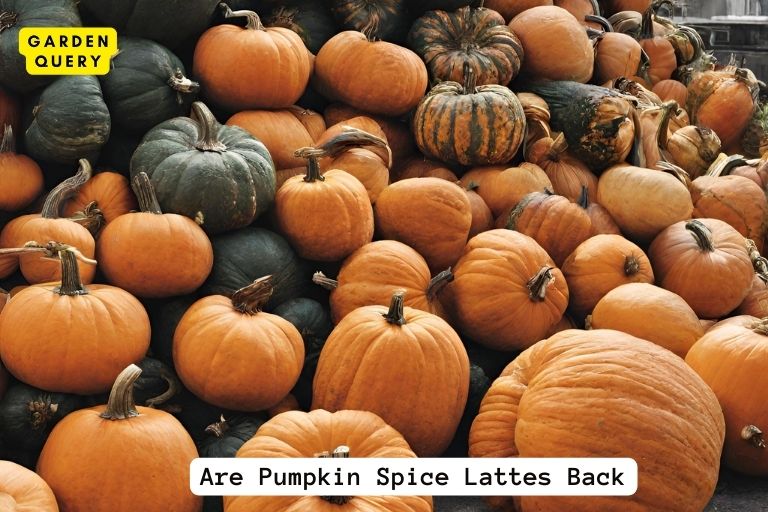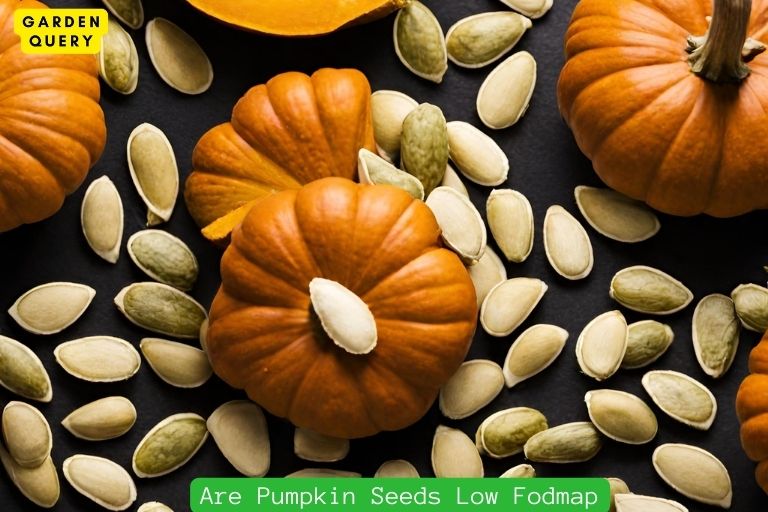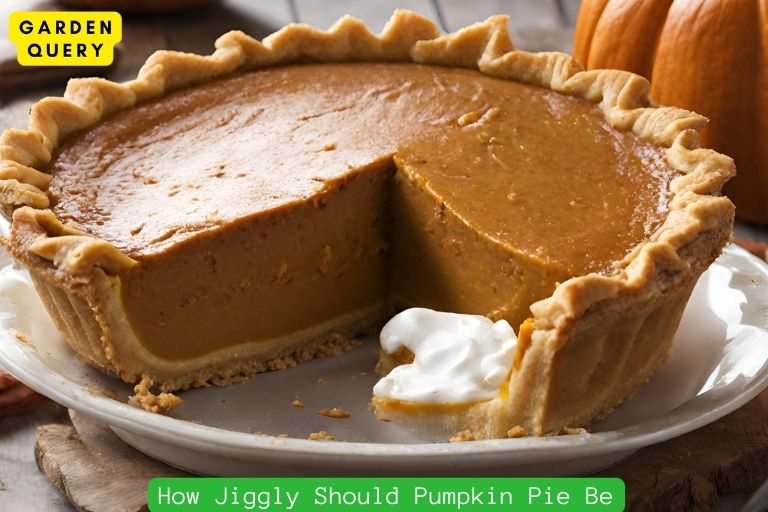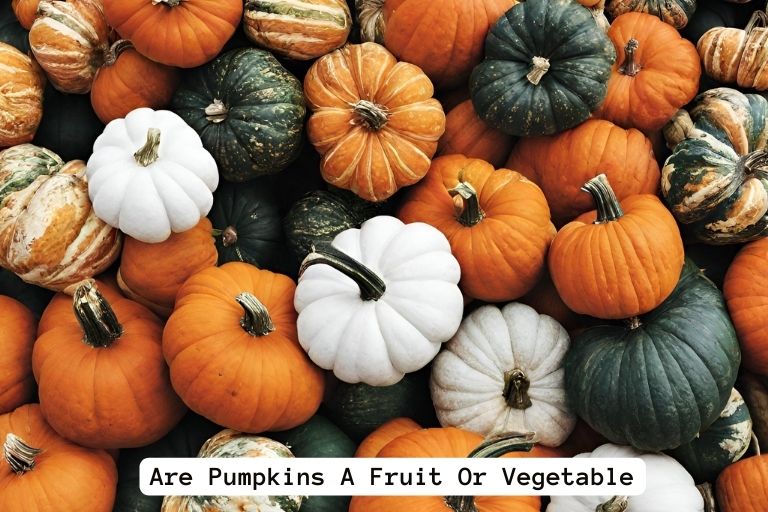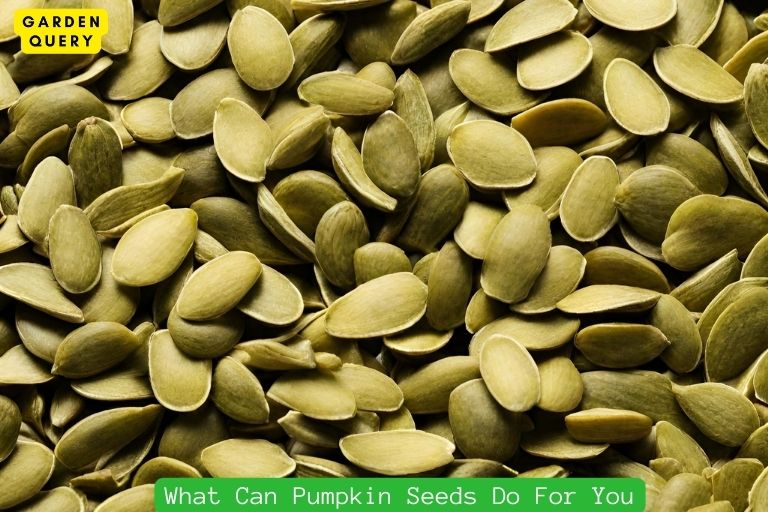Can Pumpkin Seeds Go Bad?
Pumpkin Seeds Go Bad
What are pumpkin seeds?
Pumpkin seeds, also known as pepitas, are the edible seeds derived from pumpkins. They are flat and oval-shaped, typically green in color, and have a white outer shell. Pumpkin seeds are packed with nutrients, including protein, healthy fats, fiber, vitamins, and minerals, making them a popular snack and ingredient in various dishes.

Are pumpkin seeds perishable?
Yes, pumpkin seeds are perishable. Like any other food item, pumpkin seeds can go bad if not stored properly or if they are past their expiration date. The shelf life of pumpkin seeds depends on several factors, including how they are stored and whether they are roasted or raw.
Raw pumpkin seeds generally have a shorter shelf life compared to roasted ones. They contain natural oils that can become rancid over time, especially if exposed to heat, light, or moisture. To extend the shelf life of raw pumpkin seeds, it is recommended to store them in an airtight container in a cool, dark place, such as a pantry or refrigerator. Proper storage can help prevent the seeds from becoming stale or developing an unpleasant taste.
Roasted pumpkin seeds, on the other hand, have a longer shelf life compared to raw ones. The roasting process helps to remove some of the moisture, making them less prone to spoilage. However, it is still essential to store roasted pumpkin seeds properly to maintain their freshness and flavor. Similar to raw seeds, roasted pumpkin seeds should be kept in an airtight container in a cool, dark place.
To determine if pumpkin seeds have gone bad, it is important to use your senses. If the seeds have an off smell, taste rancid, or have a moldy appearance, it is best to discard them. Fresh pumpkin seeds should have a nutty aroma and a crisp texture when eaten.
In conclusion, pumpkin seeds are perishable and can go bad if not stored properly. Whether they are raw or roasted, it is crucial to store them in an airtight container in a cool, dark place to maintain their freshness and prevent spoilage. By following proper storage guidelines and using your senses to detect any signs of deterioration, you can enjoy delicious and healthy pumpkin seeds for an extended period.
Shelf Life of Pumpkin Seeds
Factors affecting the shelf life of pumpkin seeds
Are you a fan of pumpkin seeds? Have you ever wondered if they can go bad? Pumpkin seeds are not only tasty but also packed with nutrition. However, like any other food, they do have a limited shelf life. It’s essential to understand the factors that can affect the shelf life of pumpkin seeds.
The first factor is the storage conditions. The quality and longevity of pumpkin seeds can be influenced by temperature, humidity, and exposure to light. Proper storage is crucial to maintaining their freshness. It is best to store pumpkin seeds in an airtight container in a cool, dark place, such as the pantry or refrigerator. This helps to prevent moisture and light from causing the seeds to go rancid or lose their flavor.
The second factor is the processing method. Pumpkin seeds can be consumed in different forms, such as raw, roasted, or salted. The processing method can affect their shelf life. Raw pumpkin seeds generally have a longer shelf life than roasted or salted ones. The roasting process can cause some loss of nutrients and oils, which can expedite rancidity.
How long do pumpkin seeds last?
The shelf life of pumpkin seeds depends on various factors, including the storage conditions and the processing method. Generally, raw pumpkin seeds can last for about six months to a year if stored properly. It is important to check the expiration date on the packaging if you purchase commercially packaged pumpkin seeds.
Roasted or salted pumpkin seeds have a shorter shelf life due to the added ingredients and processing. Once opened, they should be consumed within a few weeks to maintain their freshness and flavor. It is advisable to store them in an airtight container or resealable bag to prevent moisture and air exposure.
To prolong the shelf life of pumpkin seeds, you can also freeze them. Freezing helps to preserve their flavor and nutrients for an extended period. Before freezing, make sure to remove any excess moisture from the seeds and store them in a freezer-safe container or bag.
In summary, pumpkin seeds can go bad if not stored properly or if they are processed in a way that reduces their shelf life. It is important to consider factors such as storage conditions and processing methods to ensure the freshness and quality of pumpkin seeds. By following proper storage guidelines and paying attention to expiration dates, you can enjoy the delicious and nutritious benefits of pumpkin seeds for an extended period.
Signs of Spoiled Pumpkin Seeds
Have you found a forgotten bag of pumpkin seeds in the back of your pantry and now you’re wondering if they are still safe to eat? Don’t worry, we’ve got you covered!
How to tell if pumpkin seeds have gone bad
Pumpkin seeds, like any other food, can go bad over time. Here are a few signs to look out for to determine if your pumpkin seeds have spoiled:
- Appearance: Fresh pumpkin seeds have a firm, crisp texture and a shiny appearance. If the seeds appear dull, shriveled, or have a soft texture, it’s a sign of spoilage.
- Smell: Give the seeds a whiff. Spoiled pumpkin seeds may have an off-putting odor, similar to a rancid or musty smell. If the aroma seems unpleasant or different than expected, it’s best to discard them.
- Mold or discoloration: Mold growth is a clear sign that your pumpkin seeds have gone bad. Look for any signs of visible mold, which can appear as fuzzy patches or discolored spots on the seeds. If you see any mold, it’s important to dispose of the seeds as consuming mold can be harmful to your health.
What do spoiled pumpkin seeds look and smell like?
Spoiled pumpkin seeds may exhibit noticeable changes in appearance and smell. Here’s what to watch out for:
Appearance: Spoiled pumpkin seeds may look discolored, with dark spots or patches. They may appear mushy or slimy instead of firm and crunchy. If the seeds have changed significantly in texture and appearance, it’s a sign of spoilage.
Smell: Spoiled pumpkin seeds can emit a distinct odor that is different from their usual nutty aroma. If you detect a foul smell, similar to rot or decay, it suggests that the seeds have gone bad and should not be consumed.
In general, if you’re unsure about the freshness or safety of your pumpkin seeds, it’s better to err on the side of caution and discard them. Moldy or spoiled seeds can potentially lead to foodborne illnesses, so it’s best not to take any chances.
Remember, proper storage is essential to maintain the freshness of pumpkin seeds. To extend their shelf life, store them in an airtight container, away from heat, moisture, and exposure to light. When stored properly, pumpkin seeds can last for several months.
Now that you know what signs to look for, you can confidently check the condition of your pumpkin seeds and enjoy them worry-free or dispose of them if they have spoiled.
Storing Pumpkin Seeds
The best way to store pumpkin seeds
Pumpkin seeds are a delicious and nutritious snack, but if not stored properly, they can go bad. So, what is the best way to store pumpkin seeds to keep them fresh and tasty? Follow these tips to ensure your pumpkin seeds stay delicious for as long as possible.
- Clean and dry: Before storing your pumpkin seeds, make sure they are thoroughly cleaned and dried. This helps prevent moisture buildup, which can cause the seeds to spoil. After scooping the seeds out of the pumpkin, remove any excess flesh and rinse them in cold water. Then, pat them dry with paper towels or a clean kitchen towel.
- Airtight container: Once the seeds are completely dry, transfer them to an airtight container. This could be a resealable plastic bag or a glass jar with a tight-fitting lid. The key is to keep out air and moisture, which can accelerate the rate at which the seeds go bad.
- Store in a cool, dark place: Pumpkin seeds are best stored in a cool, dark place, such as a pantry or cupboard. Avoid storing them near sources of heat or sunlight, as this can cause the seeds to spoil faster. Additionally, make sure the storage location is not too humid, as excessive moisture can lead to mold growth.
Tips for keeping pumpkin seeds fresh
To keep your pumpkin seeds fresh and tasty for longer, follow these additional tips:
- Roast before storage: If you plan to store your pumpkin seeds for an extended period, consider roasting them first. Roasting helps remove any remaining moisture and can enhance their flavor. Simply spread the seeds in a single layer on a baking sheet and roast them in a preheated oven at 350°F (175°C) for about 10-15 minutes, or until they are golden brown.
- Label and date: To ensure you use your pumpkin seeds before they go bad, label the container with the date you stored them. This way, you can keep track of their freshness and prioritize them in your snacking or cooking adventures.
- Use a vacuum sealer: For even longer storage, consider using a vacuum sealer to remove all the air from the container. This helps create a more oxygen-free environment, reducing the chances of spoilage.
Remember, while pumpkin seeds can last several months when stored properly, they will gradually lose their crispness and flavor over time. It is always a good idea to taste a few seeds before using them in recipes or consuming them to ensure they are still fresh and enjoyable.
Storing pumpkin seeds properly not only helps preserve their taste but also extends their shelf life. By following these tips, you can enjoy the deliciousness of pumpkin seeds for an extended period without worrying about them going bad.
Using Expired Pumpkin Seeds
As a home cook or baker, you might find yourself wondering what to do with that bag of pumpkin seeds that’s been sitting in your pantry for longer than you’d like to admit. Can you still use expired pumpkin seeds? The good news is that pumpkin seeds can last for quite some time if stored properly. Let’s dive into the details.
Can you still use expired pumpkin seeds?
The shelf life of pumpkin seeds can vary depending on how they are stored. If pumpkin seeds are properly stored in an airtight container in a cool and dry place, they can last up to a year past the expiration date. However, it’s important to note that the quality may deteriorate over time. Expired pumpkin seeds might lose some of their crunchiness and flavor, but they are still safe to eat as long as there are no signs of mold or an off smell.
If you come across expired pumpkin seeds that have a rancid smell or show any signs of mold, it is best to discard them. Eating spoiled pumpkin seeds can lead to foodborne illnesses and should be avoided.
Cooking and baking with stale pumpkin seeds
If you have pumpkin seeds that are past their prime but are still safe to eat, you can still incorporate them into your recipes. Here are a few ideas to make the most of stale pumpkin seeds:
- Roasting: Toss the expired pumpkin seeds with your favorite seasonings and roast them in the oven. This will help bring back some of their crunch and enhance their flavor. Roasted pumpkin seeds can be used as a topping for salads, soups, or even as a nutritious snack on their own.
- Baking: Incorporate stale pumpkin seeds into your baking recipes. You can add them to bread, muffins, cookies, or granola bars for added texture and a hint of nuttiness. Just make sure to chop them into smaller pieces if they have lost their crunch.
- Blending: Grind the expired pumpkin seeds into a powder and use it as a topping or ingredient in smoothies, yogurt bowls, or oatmeal. This will add a nutritional boost to your meals without compromising on taste.
Remember, while expired pumpkin seeds can still be used in cooking and baking, they may not provide the same flavor and texture as fresh ones. It’s always best to use them as soon as possible for optimal taste and quality.
In conclusion, expired pumpkin seeds can still be used if they are properly stored and show no signs of spoilage. Incorporate them into your recipes through roasting, baking, or blending for added crunch and flavor. However, it’s essential to trust your senses and discard any expired pumpkin seeds that have mold or a rancid smell.
- Best Therapists In Dallas - February 1, 2024
- Holly Willoughby Husband: Holly Willoughby’s Love Story - January 30, 2024
- Holly Willoughby Dress: 5 Style Secrets and 7 Must-Know Career Milestones - January 30, 2024
